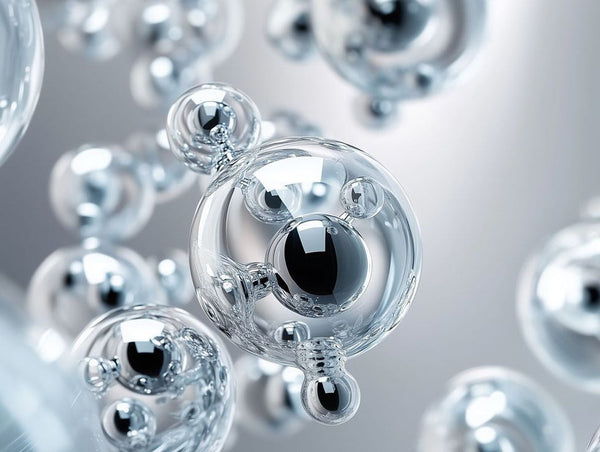Menopause marks a significant milestone in a woman's life, signaling the end of her reproductive years and the beginning of a new chapter. Understanding the various aspects of menopause is crucial for navigating this transition smoothly.
Understanding Menopause & Its Symptoms
What is Menopause?
Menopause is a natural biological process that signifies the permanent cessation of menstruation in a woman's life. It is officially diagnosed after 12 consecutive months without a menstrual period. Menopause typically occurs between the ages of 45 and 55, with the average age being around 51.
The Biological Process of Menopause
During menopause, a woman's ovaries gradually produce fewer reproductive hormones, such as estrogen and progesterone. These hormonal changes result in the ovaries no longer releasing eggs, leading to the end of menstruation. While menopause is a natural part of aging, certain medical treatments or surgeries can induce menopause at an earlier age.
Symptoms of Menopause
Menopause is often accompanied by a variety of symptoms, including but not limited to:
- Hot flushes
- Night sweats
- Mood swings
- Vaginal dryness
- Sore breasts
- Polyuria (Frequent urination)
These symptoms can vary in severity and duration from woman to woman. Additionally, menopause can have long-term effects on a woman's health, such as an increased risk of osteoporosis and heart disease due to the decline in estrogen levels.
Managing Menopausal Symptoms
There are various ways to manage the symptoms of menopause and improve the overall quality of life during this transition.
- Hormone replacement therapy (HRT) is a common treatment option that can help alleviate hot flashes and prevent bone loss.
- Vaginal dryness is a common symptom of menopause. Using OTC vaginal moisturizer or lubricant helps reduce dryness.
- Exercises such as Kegel can help prevent bladder leaks and control urination urges.
- Lifestyle changes, such as regular exercise, a balanced diet, and stress management techniques, can also play a significant role in easing menopausal symptoms.
It is important for women approaching menopause to consult with their healthcare providers to discuss their symptoms and determine the most appropriate treatment plan. By understanding the biological process of menopause and exploring available management strategies, women can navigate this natural transition with greater ease and comfort.
The Different Stages of Menopause
Menopause is a natural biological process that marks the end of a woman's menstrual cycle in her late 40s or early 50s. It is diagnosed at a point when a woman has not had a period for 12 consecutive months. However, the journey to menopause is not a sudden event but a gradual process that unfolds in distinct stages.
Perimenopause: The Transition Phase
Perimenopause is the initial stage of the menopausal transition, signaling the body's shift from reproductive to non-reproductive functions. This phase is characterized by fluctuating hormone levels, particularly estrogen and progesterone, leading to irregular menstrual cycles. Women may also experience symptoms such as hot flashes, night sweats, sleep disturbances, and mood swings. The duration of perimenopause varies for each individual, lasting anywhere from a few months to several years.
Menopause: The End of Menstruation
Menopause is officially reached when a woman has not had a menstrual period for 12 consecutive months, marking the end of her reproductive years. While menopause signifies the conclusion of fertility, it also represents a new chapter in a woman's life. With the absence of monthly periods, women may find relief from menstrual symptoms and the need for contraception. However, women need to focus on maintaining their overall health and well-being during this transformative stage.
Post-menopause: Life After Menopause
Post-menopause encompasses the years following menopause when hormonal fluctuations stabilize, and many menopausal symptoms subside. Women in this stage may experience fewer hot flashes, improved mood stability, and a decreased risk of conditions such as endometriosis and uterine fibroids. Despite the alleviation of certain symptoms, postmenopausal women should remain vigilant about their health, as they are at an increased risk for osteoporosis, heart disease, and other age-related illnesses.
Hormonal Changes and Their Impact
The Role of Estrogen and Progesterone
Estrogen and progesterone are essential hormones that play various roles in a woman's reproductive system. During menopause, the production of these hormones decreases significantly. Estrogen decline can lead to symptoms such as hot flashes, night sweats, and mood changes. Progesterone decline may contribute to irregular periods and other menopausal symptoms.
How Hormonal Fluctuations Affect Your Body
Hormonal fluctuations during menopause can impact the heart, bones, and brain, with decreased estrogen levels raising the risk of cardiovascular disease and osteoporosis. These changes can also affect cognitive function, leading to memory lapses and mood swings. Being aware of these effects and taking steps to support overall health is essential.
Estrogen
Expanding on the role of estrogen, this hormone not only regulates the menstrual cycle and reproductive system but also plays a crucial role in maintaining healthy skin and hair. Estrogen helps in the production of collagen, which gives skin its elasticity and firmness. As estrogen levels decline during menopause, women may experience changes in their skin, such as dryness, thinning, and increased wrinkling. Hair may also become thinner and more prone to breakage due to decreased estrogen levels.
Progesterone
Additionally, progesterone, often referred to as the "pregnancy hormone," is not only essential for maintaining a healthy pregnancy but also has a calming effect on the brain. Progesterone can help reduce anxiety and promote a sense of relaxation. During menopause, when progesterone levels drop, some women may experience increased feelings of anxiety and restlessness. It is important to recognize these changes and seek support to manage any emotional symptoms that may arise due to hormonal fluctuations.
Recognizing the Symptoms of Menopause
Physical Symptoms and Changes
Menopause can manifest in various physical symptoms, such as
- Hot flashes
- Night sweats
- Vaginal dryness
- Changes in libido
- Sleep disturbances
- Weight gain
Each woman's experience with these symptoms may vary in severity and duration. In addition to the physical symptoms mentioned above, menopause can also bring about changes in skin texture and appearance. Due to hormonal shifts, some women may notice their skin becoming drier, thinner, or more prone to wrinkles.
Emotional and Psychological Effects
Menopause can also impact a woman's emotional well-being. Fluctuating hormone levels can cause
- Mood swings
- Irritability
- Anxiety
- Depression (in some severe cases)
It's essential for women experiencing these emotional and psychological changes to seek support from loved ones, healthcare professionals, or support groups. Mental health matters during this transition.
Beyond the commonly known emotional effects, menopause can also influence cognitive function. Some women may experience
- Memory lapses
- Difficulty concentrating
- Mental fog
Engaging in brain-stimulating activities, maintaining a healthy lifestyle, and discussing concerns with a healthcare provider can aid in managing these cognitive changes. Additionally, menopause can prompt reflections on life goals, relationships, and personal identity, leading to a period of introspection and self-discovery.
Lifestyle Modifications for Menopause Management
In addition to medical interventions, lifestyle modifications play a crucial role in managing menopausal symptoms and promoting overall well-being.
Diet and Nutrition for Menopause
Maintaining a healthy, balanced diet is crucial during and after menopause. Focus on nutrient-rich foods like fruits, vegetables, whole grains, and lean proteins to get essential vitamins and minerals. Prioritize calcium and vitamin D for bone health, and reduce caffeine, alcohol, and spicy foods to help alleviate symptoms like hot flashes and night sweats.
Menopause can lead to acne, dry skin, and changes in hair growth and texture. Proper skincare routines, hydration, and nourishing hair products can help manage these effects. Consulting with a dermatologist is also beneficial.
Exercise and Physical Activity
Aim to incorporate at least 150 minutes of moderate-intensity aerobic activity into your weekly routine, along with strength-training exercises to maintain muscle mass and bone density. Regular physical activity is key for women going through menopause. Engaging in exercise helps in reducing the risk of menopause like cardiovascular disease and osteoporosis, helps in managing weight, improving sleep quality, boosting mood, and enhancing overall well-being.
Stress Management and Mental Health Care
It is essential to develop healthy coping mechanisms to effectively manage stress during this period. Activities such as yoga, meditation, deep breathing exercises, and spending time in nature can help promote relaxation and reduce stress levels.
Conclusion
Menopause is a natural phase that brings unique challenges and opportunities for women. Understanding its biological process, stages, hormonal changes, and symptoms helps navigate this period better. Adopting lifestyle modifications, like a balanced diet, regular exercise, and stress management, can help cope with menopause. Embrace menopause as a new chapter, and with proper support and self-care, it can be a fulfilling and empowering time in a woman's life.



























 DOWNLOAD NOW
DOWNLOAD NOW
